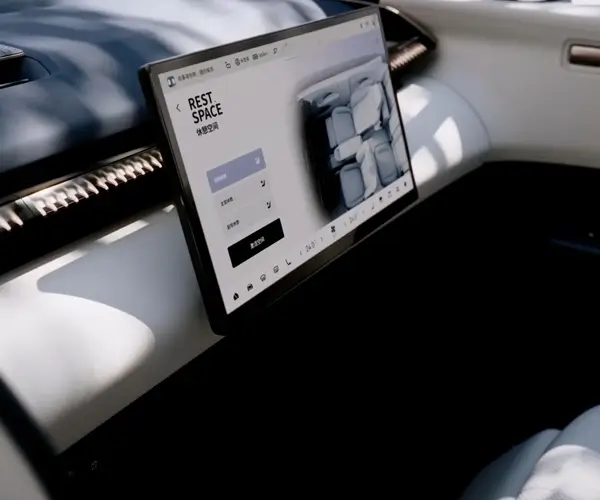In the fast-evolving realm of robotics, the quest for the perfect servo motor is akin to hunting for the Holy Grail. Whether you're building a robotic arm, an autonomous drone, or a complex automation system, choosing the right servo motor can make or break your project's success. But with a plethora of options flooding the market, how do you decipher which one truly deserves the title of “best”?

The foundation of any reliable robotics application begins with understanding what a servo motor is and why it's indispensable. Unlike simple electric motors that rotate continuously, servo motors are designed to provide precise control of angular position, velocity, and acceleration. Their ability to hold a position and respond swiftly to control signals makes them the backbone of robotic movement.
So, what features define the best servo motor for robotics? Several key aspects come into play. Let's explore each in detail:
1. Torque and Power Capacity: Robotics applications often demand significant torque, especially for lifting, gripping, or moving heavy parts. The best servo motors deliver high torque relative to their size, ensuring smooth and powerful operations. For instance, robotic arms used in manufacturing require motors that can handle substantial payloads without sacrificing speed or accuracy.
2. Precision and Resolution: In robotics, minute movements can be critical. High-resolution servo motors allow for fine adjustments, enabling robots to perform delicate tasks such as assembling micro-components or handling fragile objects. Look for motors with high encoder resolution—commonly measured in pulses per revolution (PPR)—to achieve superb positional accuracy.
3. Response Time and Speed: Fast response times are vital for dynamic operations like balancing, quick pick-and-place tasks, or responsive control in autonomous systems. The ideal servo motor can react promptly to control signals, maintaining stability and fluidity in movement.
4. Durability and Reliability: Robotics often operate in demanding environments. A top-tier servo motor should feature robust construction, thermal management, and protective features like IP ratings to resist dust, moisture, or other elements that could impair performance.
5. Control Flexibility: Advanced control modes—like position, velocity, and torque control—expand the versatility of servo motors. Integration with modern servo drives or controllers enables seamless communication and customization to match the robotic application's specific needs.
Now, let's examine popular types of servo motors suitable for robotics:
Brushless DC (BLDC) Servo Motors: Known for high efficiency, durability, and smooth operation, BLDC motors are a favorite among robotics engineers. They require less maintenance and offer excellent performance across a range of speeds.
AC Servo Motors: Offering high performance, especially in industrial settings, AC servos deliver excellent torque, high resolution, and reliable operation. They are commonly used in precision CNC machines and robotic arms.
Stepper Motors (less common for high-end robotics): While not true servos, stepper motors can be used in certain applications, providing precise control through incremental steps. However, they lack the continuous rotation, high torque, and responsiveness of dedicated servo motors.
Choosing the right servo motor extends beyond technical specs—consider your specific application, budget, and future scalability. For example, small hobby robots might prioritize affordability and simplicity, whereas industrial robots demand high-performance, durable options.
Top Brands and Models to Watch
As you embark on sourcing your servo motor, several companies have earned stellar reputations through quality, innovation, and service:
Hitec: Known for reliable, affordable hobby-grade servos that excel in smaller robots and educational projects.
Dynamixel (by Robotis): These smart servo motors feature integrated controllers, making them popular in humanoid robotics and research projects.
Maxon: Premium German manufacturer offering high-end servo motors tailored for demanding industrial and research applications.
Yaskawa and Fanuc: Leaders in industrial servo systems, suitable for large-scale automation and manufacturing robots.
Understanding Cost and Performance Balance
While it's tempting to go for the top-tier options, budget constraints often influence your choice. Striking a balance between cost and performance involves assessing your project's core requirements. Sometimes, a well-chosen mid-range servo can outperform cheaper counterparts in critical areas, ensuring durability and precision without breaking the bank.
In summary, selecting the best servo motor for robotics is an intricate process that hinges on your system's specific needs—be it precision, power, speed, or robustness. It’s an investment in your project’s reliability and efficiency, shaping how well your robot performs in its demanding tasks. As you proceed, remember that the ideal servo motor is the one that aligns perfectly with your application's demands, offers room for growth, and stands the test of time.
(part 2 will follow with deeper comparisons, case studies, and insights into integrating these motors into robotics systems.)
Leveraging innovations in modular drive technology, Kpower integrates high-performance motors, precision reducers, and multi-protocol control systems to provide efficient and customized smart drive system solutions.




































